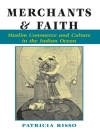Homemade liquor has played a prominent role in the Appalachian economy for nearly two centuries. The region endured profound transformations during the extreme prohibition movements of the nineteenth century, when the manufacturing and sale of alcohol—an integral part of daily life for many Appalachians—was banned. In Moonshiners and Prohibitionists: The Battle over Alcohol in Southern Appalachia, Bruce E. Stewart chronicles the social tensions that accompanied the region’s early transition from a rural to an urban-industrial economy. Stewart analyzes the dynamic relationship of the bootleggers and opponents of liquor sales in western North Carolina, as well as conflict driven by social and economic development that manifested in political discord. Stewart also explores the life of the moonshiner and the many myths that developed around hillbilly stereotypes. A welcome addition to the New Directions in Southern History series, Moonshiners and Prohibitionists addresses major economic, social, and cultural questions that are essential to the understanding of Appalachian history.
Table des matières
List of Tables and Illustrations
Preface
Introduction
Part I: The Beginnings of Antialcohol Reform, 1790–1860
1. ‘This Country Improves in Cultivation, Wickedness, Mills, and Still’: Distilling and Drinking during the Antebellum Period
2. Select Men of Sober and Industrious Habits: Alcohol Reform and Social Conflict during the Late Antebellum Period
Part II: The Golden Age of Moonshining, 1861–1876
3. ‘Is There Any Way to Get at the Distillers?’: The Fall and Rise of the Moonshiners, 1861–1868
4. ‘They Tax Us and Give Us Negro Civil Rights’: Moonshiner Violence and the Politics of Federal Liquor Taxation, 1868–1876
Part III: The Road to Prohibition, 1870–1908
5. Civilization Requires Prohibition: The Beginning of the End for the Moonshiners, 1870–1882
6. ‘These Big-Boned, Semi-Barbarian People’: Creation of the Myth of Violent Appalachia and Its Consequences, 1878–1890
7. ‘Afloat on the Tide of Improvement’: The Uplift Movement and Rise of Prohibition Sentiment in Rural Communities, 1885–1900
8. ‘Wilt Thou Send the Revenues Down upon the Distillers’: A Political History of Prohibition, 1882–1908
Conclusion
Notes
Bibliography
Index
A propos de l’auteur
Bruce E. Stewart is associate professor of history at Appalachian State University.












